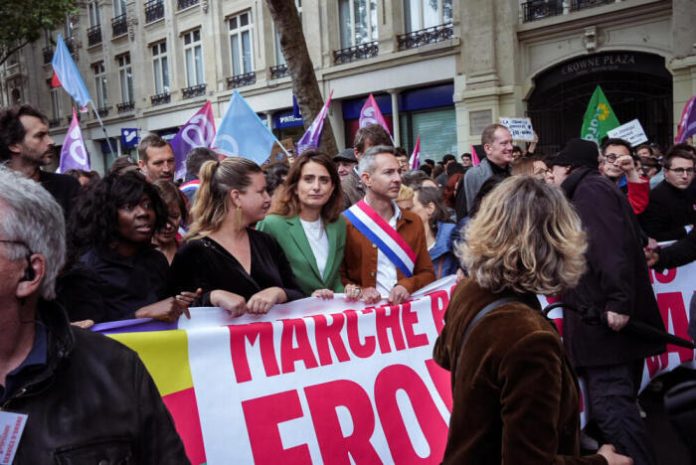By Declan Mulholland
LONDON:This month’s far-right riots brought chaos to communities across the country, perhaps most notably in parts of the North East. The pattern of locations might initially have seemed random, but it quickly became clear that there was a concerted effort to seize upon some of the country’s most deprived areas to drive a racist agenda.
Towns like Middlesbrough, Hartlepool, and Darlington have been systemically abandoned throughout more than a decade of Conservative rule. This process might have begun with deindustrialization, but it has continued through the demise of a multitude of social institutions and, more recently, with deep cuts to local government. There has been precious little by means of investment or provision of decent jobs to fill the gap. For many, especially young people, this means little hope, and no sense of the future. A recent report by the Joseph Rowntree Foundation, using figures published by the Department for Work and Pensions, found that a massive 41 percent of Middlesbrough’s children were living in poverty. It should come as little surprise that the far-right riots occurred in seven of the ten most deprived areas in the country.
This is the space in which a resurgent far right is building. The riots on the street now appear to have simmered down, but the circumstances that created them endure.
Often when socialists talk about the need for “class unity” in these moments, it seems like we’re reciting a passage from scripture or making a demand detached from realities on the ground. But nothing could be farther from the truth. Class politics is the only way that this latest iteration of fascism can be defeated.
We must offer a vision of community that offers the prospect of a better, more meaningful life for our people. That means tackling low pay and destitution, deteriorating public services, and hollowed-out high streets. It means putting names and faces to the profiteers who tear apart our social fabric and empowering those who stitch that fabric together. In too many of our communities, racism is growing in the dark and damp of despair.
The counterdemonstrations that followed the rioting were inspiring but also limited. The largest crowds were in cosmopolitan urban areas, not in the communities with relatively little diversity that were targeted by the fascists. In lower-income, predominantly white working-class communities outside of larger cities, the politics that led to the wave of racist violence are likely to continue to grow until the narrative behind them is deconstructed in terms that those communities can relate to.
If we try to fight the far right without providing a program that can tackle the real challenges these communities are facing, we will fail. Our enemies will continue to have success in turning popular anger into nativist reaction. If we try to fight the far right just by gathering together only those who already hold progressive opinions in university towns, we will also fail. And in the process, we will turn anti-racism into a cause of an enlightened elite rather than the bedrock of any successful movement to unite the working class.
At the same time many working-class communities in the North East lost their industry, they also lost their connection to class politics through the trade union movement. The absence of class politics and working-class solidarity has left a vacuum. Where we would argue that neighbors, regardless of their backgrounds, have common interests in fighting poverty pay, service cuts, and profiteering corporations driving up the cost of living, working-class people are instead having their worldview shaped online — often by anti-union billionaires like Elon Musk.
If we’re serious about building a broad movement to fight those provocateurs, we have to focus on the common causes of our class. That means a program for renewal: good, unionized jobs in place of low pay and insecurity; rebuilding social institutions that can provide a sense of ownership over the places we live; active local government that empowers communities through wealth building; an absolute rejection of poverty, especially among children, through policies like free school meals and the end to the two-child cap; a properly funded apprenticeship scheme and youth services to offer paths forward for our young people; and a commitment to investing in deprived areas — to the leveling-up that was promised and then betrayed, like so many previous commitments.
If we are bold enough to build a movement that seeks to unite people around these causes rather than allowing them to be divided by racist hatred, we stand a chance at stemming the fascist tide. The far right has failed to move beyond destruction; they have no agenda for the kind of change that could actually improve conditions for working people. We have hope on our side. Now we must build upon it.(IPA


